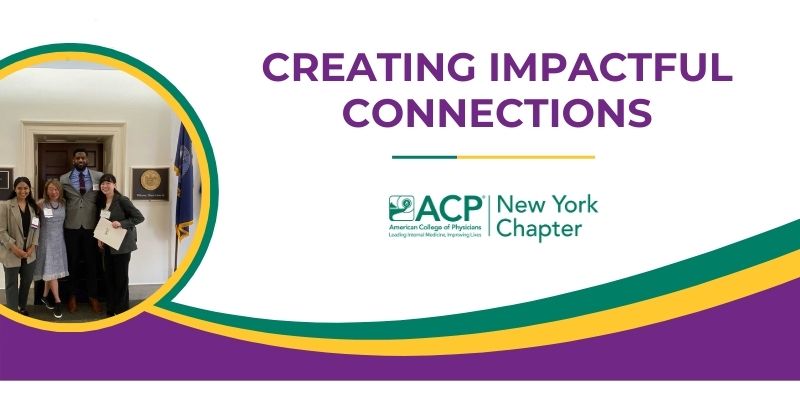Guidelines for Contacting Legislators

Legislator(s) want to hear from their constituents, especially those who are educated on the current health issues of the time. As physicians, your comments on medical related issues are important because you are experiencing the changes in health care delivery everyday.
The following information will give you guidance on the techniques of communicating with legislators.
Identifying Your Elected Officials
- USA.gov - enter your address to find federal, state and local elected officials. This site also provides phone, email, website and social media information for each legislator.
- NYACP Advocacy Center - enter your address to find a list of federal, state and local elected officials. Email your legislators and respond to Chapter calls to action.
- NY Assembly Member Search - enter your address to identify your state assembly representative
- Find My Senator - enter your address to identify your state senate representative
- New York State Counties - access the government website for your county to find local officials and learn about their work.
- New York State Assembly Committees - identify the elected officials serving on relevant committees to know whom to contact.
- New York State Senate Committees - identify the elected officials serving on relevant committees to know whom to contact.
Meeting Your Legislator
Take advantage of every opportunity to meet and become better acquainted with your lawmakers. Sign up for their newsletters and follow them on social media to learn about events and priorities. Opportunities to meet may develop through NYACP activities, local civic or charitable organizations, local and state political functions, and political fund raisers. Relationships started locally can evolve quickly into relationships which foster discussion of your concerns.
Working With Aides
Aides are appointed by legislators to assist them in carrying out their duties, and most key aides report directly to their legislator. Due to the pressures of daily business, it is very difficult to reach a legislator. It is important to develop a good working relationship with an aide. In contacting a legislative aide, try to work with the individual who is responsible to the legislator for the health issues you want to discuss. This way you can be assured that your problem will be brought to the legislator’s attention and handled expeditiously.
Contacting Your Legislator
There are several forms of communication that are effective in building a relationship with your lawmaker. Personal meetings, either to discuss a specific issue or just to introduce yourself as a constituent, are the most effective. As a constituent, you can develop and maintain an ongoing, working relationship with the local, state, and federal government officials representing your area. These relationships are best established at a time of no need.
These relationships are best developed by contacts made when the legislator is home in his or her district. In these personal contacts, it is important that you be positive and constructive in your remarks.
Here are some tips to follow when you contact your legislators:
DO
- Explain why you are getting in touch; tell the legislator how the bill or proposal would affect you, your physician colleagues and most importantly your patients. Use examples from your own practice.
- Make communication clear, brief and to the point. Use one page if possible when writing.
- Be direct; get to the point right away. Explain exactly what you want your legislator to do.
- Concentrate on issues and problems; suggest alternative solutions if possible.
- Educate your legislator about the pertinent facts.
- Emphasize any unfairness in the present system or in a proposal for change.
- Send NYACP "blind" copies of your correspondence or keep us informed of the results of your meetings or phone conversations. (But don't indicate this is being done on the letter or in your conversations with your legislator or his or her staff.)
- Thank legislators when they've supported you.
- If legislators agree to help you, ask specifically what they intend to do. For example, if your lawmaker says that he or she supports your opinion regarding a particular issue, ask him or her to introduce legislation addressing that issue. If he or she agrees to do so, follow up and make sure that it is done--it will not help your case if a promised action is not taken.
DON'T
- Don't refer to NYACP in your correspondence or pass along material sent to you unless specifically requested. This makes your communication seem more spontaneous and increases its effectiveness.
- Don't beat around the bush, ramble or go to unnecessary length. Avoid using medical jargon where possible.
- Don't dwell on individuals or personalities.
- Don't take for granted that your legislator understands the subject matter.
- Don't use notations such as "cc: NYACP," which let the legislator know that NYACP will receive a copy of your correspondence.
- Don't threaten not to vote for legislators if they are unwilling to support the positions you are advocating.
- Don't send "canned" letters, postcards or petitions. These vehicles are not taken as seriously as a personal letter. Personal letters demonstrate a greater commitment of time and effort to your issue.
- Don't be offended if you meet with or speak to the staff rather than the lawmaker.